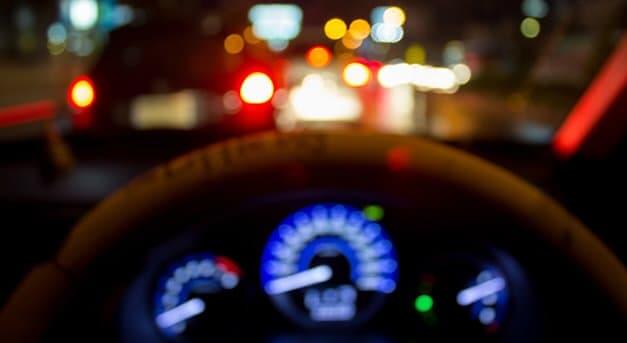An Overview of Florida DUI Laws & Penalties
Understanding Driving Under the Influence Laws in Florida
Abraham Lincoln once said, "A man who represents himself has a fool for a client. If you or a loved one have been arrested for driving under the influence in Florida, one of the most harmful things you can do is to try and represent yourself. Unfortunately, even first-time offenders can be subject to serious criminal penalties and long-term repercussions if not represented by a private, experienced Florida DUI Defense Lawyer.
According to the Florida Department of Law Enforcement, approximately 30,000 people are arrested for drunk driving. A study conducted by the U.S. Centers for Disease Control & Prevention reported that there was a 30% increase in the number of Florida DUI arrests from 2014 to 2018. Another report issued by the National Institute on Alcohol Abuse and Alcoholism states that alcohol sales in Florida have increased by about 8% during the coronavirus pandemic.
It is important to take a DUI charge very seriously. DUI penalties are severe, particularly if they involve serious bodily injury or death to someone else.
The Florida DUI Defense Lawyers at Musca Law are committed to helping those accused of driving under the influence of alcohol and/or drugs fight their criminal charges. If you or a family member have been charged with DUI in Florida, our experienced DUI defense attorneys at Musca Law are ready to help. Our firm has over 30 offices throughout Florida to help you. Call (888) 484-5057 to receive your free case review.
Why You Need a Florida DUI Defense Lawyer Even if You Don’t Live in Florida
Every year, 100s of tourists and visitors who visit Florida are charged for Driving Under the Influence (DUI). If you or a loved one is facing a DUI charge, you will need to retain an experienced Florida DUI Defense Attorney. Also, by hiring a private attorney and depending on the circumstances of the DUI charge, the defendant could be able to avoid having to appear in court. Please note that acting quickly to handle a Florida DUI charge can prevent an arrest warrant from being issued for a defendant, which is applicable throughout all 50 states!
Understanding Driving Under the Influence Criminal Charges in Florida
Florida is a very popular tourist destination, attracting tourists and visitors from all over the World. In addition to its massive population, Florida is also home to several universities and colleges throughout the state. As such, there are many drivers in Florida who are young adults, who are often more at risk of facing DUI charges more so than any other age group.
Florida’s DUI laws are comparable to DUI laws in other states concerning its legal blood-alcohol content (BAC) limit, which is 0.08%. Also, all drivers should understand the repercussions of being charged with a DUI-related offense in Florida.
Florida DUI Penalties - Jail Sentences, Fines, Probation & Other Punishments
In Florida, DUI charges range in severity from a misdemeanor to a first-degree felony. According to Florida Statute Section 316.193(1), a driver may be charged with DUI if the prosecution can prove without a reasonable doubt:
- The defendant who is being charged with a DUI was found in actual control of or driving a motor vehicle; and
- The defendant was found under the influence of alcohol or a controlled substance, a chemical substance, and was intoxicated such that their normal faculties* were impaired;
- The defendant had a breath-alcohol concentration level of 0.08 or more grams of alcohol per 210 liters of breath; or
- The defendant had a blood-alcohol level of 0.08 or more grams of alcohol per 100 milliliters of blood.
* A person’s “normal faculties” may include, without limitation, the ability to talk, hear, walk, act in emergencies, see, judge distances, drive a vehicle, make judgments, as well as perform the physical and mental acts of daily life.
If you or a family member are facing a DUI charge in Florida, you or your loved one must be aware of the possible outcomes in your criminal case. This starts by having an understanding of the state laws associated with driving under the influence.
According to Florida Statutes Section 316.193, driving under the influence may also be established should the prosecution demonstrate that the accused was in actual physical control of a motor vehicle or was driving while either under the influence of alcohol or chemical substance to the extent that the driver’s normal faculties are impaired or while they had a breath or blood alcohol concentration of 0.08% or more. A driver’s “normal faculties” include, without limitation, the ability to walk, talk, hear, see, act in emergencies, judge distances, make judgments, drive a vehicle, as well as perform the mental and physical acts of daily life.
As law enforcement conduct their investigation, when alcohol impairment is suspected, a road-side breathalyzer test will be conducted. If the officer believes the driver is under the influence of drugs, it can be difficult for the prosecution to establish impairment with only a chemical test. A chemical test may show that an individual consumed a drug at some occasion in the past, but is insufficient in establishing that the driver was “high” at the time of operating a motor vehicle.
If you or your family member are a first-time DUI offender and you or your loved one was convicted of a first time DUI in Florida, you will face the following punishments:
- A permanent criminal record;
- A monetary fine not to exceed $1,000;
- Driver’s license suspension;
- Up to six months in county jail; and
- The possibility of having an ignition interlock device installed on your motor vehicle at your own expense.
The aforementioned punishments assume that you or your loved one were not involved in an accident and you or your loved one did not leave the accident scene), didn’t cause accident-related injuries to another person, do not have a criminal record, did not have a BAC level of 0.015% or more, or were not found operating your motor vehicle with someone under the age of 18 in your vehicle at the time when you or your loved one were placed under arrest. Accordingly, those circumstances are grounds for harsher penalties.
It is essential to understand that a drunk driving conviction may also affect a child custody/parenting time dispute or a divorce case.
The Collateral Consequences of a DUI Conviction in Florida
If an individual has been convicted of a DUI-related criminal offense in Florida, they will be subject to several different collateral consequences. These collateral consequences include the following:
- Challenges in finding gainful employment;
- A publicly-viewable criminal record;
- Challenges in renting an apartment or home;
- Challenges in obtaining credit;
- A tarnished reputation that may result in job loss, loss of personal relationships, and social stigma.
- Trouble traveling to and from school or work; and
- Challenges in being accepted to an institution of higher learning.
The more experienced the Florida DUI Attorney, the better off a defendant will be when facing the criminal trial.
Criminal Penalties Resulting from a Variety of Different DUI Convictions
Pursuant to Florida law, the following penalties apply to DUI-related crimes:
|
DUI Charge |
Classification |
Maximum Jail Time |
Maximum Fine |
|
First DUI Offense with BAC of .08 or more |
Unclassified Misdemeanor |
6 Months |
$1,000 |
|
First DUI Offense with Minor Under 18 in Vehicle |
Unclassified Misdemeanor |
9 months |
$2,000 |
|
First DUI Offense for BAC of .15 or more |
Unclassified Misdemeanor |
9 months |
$2,000 |
|
Second DUI Offense with BAC of .08 or higher |
Unclassified Misdemeanor |
9 Months |
$2,000 |
|
Second DUI Offense with BAC of .15 or higher |
Unclassified Misdemeanor |
1 Year |
$4,000 |
|
DUI Offense Involving Damage to Property |
First-Degree Misdemeanor |
1 Year |
$1,000 |
|
Third DUI Offense More than 10 Years After Prior Offense |
Unclassified Misdemeanor |
1 Year |
$5,000 |
|
Third Offense within 10 Years |
Third-Degree Felony |
5 Years |
$5,000 |
|
Fourth or Subsequent DUI Offense |
Third-Degree Felony |
5 Years |
$5,000 |
|
DUI Involving Serious Bodily Injury |
Third-Degree Felony |
5 Years |
$5,000 |
|
DUI Manslaughter (death of another person or unborn child) |
Second-Degree Felony |
15 Years |
$10,000 |
|
DUI Manslaughter Involving Driver Who Failed to Render Aid |
First-Degree Felony |
30 Years |
$10,000 |
Florida’s Monthly Reporting Probation and Substance Abuse Course
Pursuant to Florida Statutes Chapter 316, Section 193(5), an individual convicted of a DUI-related crime will be required to complete a substance abuse course conducted by a certified DUI program that includes a psychological evaluation, and undergo monthly reporting probation. If a convicted defendant is evaluated and is referred by the DUI program to substance abuse treatment, the defendant is obligated to comply with any and all testing, treatment and evaluation.
An Overview of Police Officer Discretion in Florida
While police discretion is warranted in certain situations, it may result in criminal charges that are not appropriate. Therefore, to better your chances of beating your DUI charge in Florida, the accused offender should quickly consult with an experienced, reputable Florida DUI Defense Attorney.
Although most DUI charges relate to alcohol consumption, some DUI charges involve drug use. Accordingly, DUI arrests that involve drugs are usually caused by the behavior of the alleged offender. In other words, if the defendant’s “normal faculties are impaired,” the driver could be placed under arrest for suspicion of DUI even if the officer is unable to establish that the driver is impaired by drugs at the time of the DUI investigation. This is often a point of debate when your defense attorney is challenging your DUI charges in court.
The Dismissal or Reduction of DUI-Related Charges in Florida
If you or a family member is facing DUI charges in Florida, the primary goal of your attorney is to fight to have the charges dismissed. Should the prosecution fail to satisfy all of the requisite elements of a Florida DUI charge, the defense attorney would have grounds to seek a dismissal of the charges. Notwithstanding, if a defendant chooses to represent themselves or use a public defender, the defendant may not receive the results they desired. While public defenders are qualified lawyers, public defenders do not always have the time, support staff, and resources that a large such as Musca Law has to offer.
By hiring an experienced Florida DUI Defense Lawyer, a defendant who is accused of committing a DUI-related offense would have an excellent chance of having adjudication withheld or having the criminal charges dismissed (in situations where the prosecution’s evidence isn’t sufficient and/or the defense prevented the prosecution in obtaining a conviction at trial). If a defendant has had his or her adjudication withheld, the defendant accused of committing a DUI offense will still be subject to probationary terms, and will be required to satisfy several requirements which include, without limitation, the following:
- Mandatory community service;
- Successful completion of court-approved alcohol and drug abuse education courses;
- The suspension or revocation of the defendant’s driver’s license;
- Submission to routine and random drug and alcohol testing;
- Mandatory ignition interlock device installation on the defendant’s vehicle for a certain period of time; and
- Successful completion of drug or alcohol abuse treatment.
Many of the punishments listed above also apply to defendants who have been convicted of a DUI offense. However, when adjudication has been withheld, a defendant could avoid having a DUI conviction on the defendant’s permanent record.
The Arrest and Detention Process Involving Those Suspected of DUI in Florida
Florida law permits law enforcement to detain a driver suspected of Driving Under the Influence for a certain amount of time after the driver has been arrested. Under Florida Statute Section 316.193(9), a driver arrested for suspicion of DUI must stay in jail until one of the following criteria has been met:
- The defendant’s blood-alcohol or breath-alcohol level is less than 0.05;
- Eight hours have passed since the of the arrest; or
- The individual is no longer under the influence of alcohol, chemical substances or controlled substances to the extent their normal faculties are impaired.
While police officers may detain individuals, as permitted under Florida DUI law, ta defendant could be kept in custody for a longer period of time than allowed under Florida law. In such situations, it is essential for the defendant to retain an experienced Florida DUI Defense Attorney as quickly as possible following the arrest.
College Students and DUI Charges – What to Know
Florida is home to more than (150) one-hundred-fifty universities and colleges that accept students from across the country and the world. Florida colleges and universities have a lot to offer. All college students will have a new level of freedom and independence, which brings both rewards and responsibilities. One such “responsibility” is to avoid drinking and driving.
Teenagers and young adults notorious make mistakes, and one mistake of driving under the influence should not destroy a college student’s future. While some punishments may be warranted, a college student (particularly if the defendant has no criminal record) should not be subjected to serving time in jail. Moreover, depending on the alleged conduct, having the right Florida DUI Defense Lawyer may results in a DUI charge being reduced to a much less serious crime that will not have the same long-term consequences and stigma as a DUI conviction.
What College Students Should Know About DUI Laws in Florida
Parents can depend on Musca Law to help their child regardless of which college the student attends school. At Musca Law, our firm maintains over thirty locations throughout Florida, many are located in college towns such as Miami, Tallahassee, Gainesville, Jacksonville, Tampa, and elsewhere. Not all DUI defense law firms in Florida have the resources to reach state-wide clients, but Musca Law can uniquely handle cases throughout the state.
In Florida, if a driver’s blood-alcohol content BAC level is equal to or more than 0.08, the driver could face a DUI charge. Depending on the judge and the prosecutor involved in a DUI case, the defendant could face a jail sentence, fines, probation, community service, lose his or her driver’s license for at least one year, and be required to install in ignition interlock device. Such punishments are harsh for a college student.
According to Florida law, driving under the influence (DUI) is a misdemeanor in the first-degree and is punishable by no more than six months in jail for a first DUI conviction. A second DUI conviction is punished with up to nine months in jail. Additionally, if convicted, the defendant is may have to pay a monetary fine of up $1,000.
The Long-Lasting Consequences of a DUI Conviction for College Students
A DUI conviction is serious, regardless of whether that individual is a college student. However, college students are trying to obtain an education and begin their life career. One DUI conviction may make it very hard to obtain a job, rent an apartment, obtain credit, or apply to graduate school. To avoid the severe penalties permitted under Florida law, parents and/or college students should retain an experienced Florida DUI attorney who will fight for an acquittal or the least severe penalties possible.
Aggravated Felony DUI Charges in Florida
Police and prosecutors in Florida take DUI charges very seriously, and the punishments of a conviction can be severe. However, some defendants who are facing DUI charges may be able to avoid jail, especially if this is a first offense. However, if a defendant is facing more severe DUI charges, such as DUI manslaughter or felony DUI, serving jail time is a likely outcome if convicted.
First and Second Offense DUI in Florida
According to Florida law, it is unlawful to operate and/or have control of a motor vehicle while under the influence of drugs or alcohol. The legal limit in Florida is a blood-alcohol content of 0.08%. If a driver’s BAC level is 0.08 or higher, the driver may face the first-degree misdemeanor charge of driving under the influence. If the driver is convicted, he or she will face up to six months in jail plus a monetary fine of up to $1,000 for a first-time DUI offense, and a second DUI conviction is punishable with up to nine months in jail and a fine of up to $2,000. A Second DUI conviction is also considered a first-degree misdemeanor.
Aggravated Felony DUI in Florida
If a driver has two prior DUI convictions and then is convicted for a third DUI within ten years of the second DUI conviction, the crime then is charged as a third-degree felony. A third-degree felony DUI conviction is punished with up to five years in jail and a fine of up to $5,000. If a driver has three other DUI convictions on their record and then is convicted for a fourth DUI, he or she will be charged with a third-degree felony. A DUI with an accident causing injury is a third-degree. All felony DUI convictions are likely to result in prison time.
DUI Manslaughter Charges in Florida
The most serious DUI charge in Florida is a DUI manslaughter criminal charge. A person may will face DUI manslaughter charges if a driver caused the death of another person or unborn child who would have survived outside the womb (known as a “quick child”). In Florida, DUI manslaughter is a second-degree felony and carries prison sentence of up to fifteen years, and a monetary fine of up to $10,000. Additionally, any person convicted of DUI manslaughter will be sentenced to a minimum prison sentence of four years.
Defending Florida Felony DUI Charges
Defending a felony DUI case to the fullest extent possible involves immediate response by an experienced DUI defense lawyer as quickly as possible after a person is charged with felony driving under the influence.
Examples of said actions include, among other actions, the following:
- Being present for any questioning by police officers or detectives;
- Evaluating and taking photos of the accident scene if the alleged DUI was related to a traffic accident;
- Evaluating the area where the defendant was pulled over:
- Speaking with the defendant he or she is interrogated by the police;
- Obtaining the police report, evidence, all other files and test results pertaining to the DUI incident;
- Providing the defendant will all advice and guidance concerning what to expect; and
- Obtaining the defendant’s criminal history to shape a defense strategy.
A defendant’s constitutional rights could be infringed the second they is pulled over on suspicion of drunk driving. Law enforcement must comply with the U.S. Constitution, and any constitutional violations might lead to the dismissal of the DUI charges.
Fighting Florida felony DUI charges without a highly skilled DUI attorney is a mistake that many individuals regret after facing felony convictions that forever changed their lives.
DUI with Property Damage. Florida Statute Section 316.193.3C1
“DUI with Property Damage” in Florida is explained under Florida Criminal Statute Florida Statute Section § 316.193.3C1. In Florida, any driver who causes a motor vehicle accident resulting in property damage belonging to another while driving under the influence of alcohol, illegal drugs, or a controlled substance has committed a first-degree misdemeanor.
DUI with Property Damage Criminal Charges in Florida (FL)
Under Florida Criminal Statute Florida Statute Section § 316.193.3C1, a driver who has been charged with Driving Under the Influence of alcohol or drugs could receive another charge if they caused an accident with property damage. Police officers and State Prosecutors will prosecute the DUI offense to the fullest. In Florida DUI cases that involve a crash with property damage, the State will impose enhanced penalties regardless of the cost of the damage.
The Penalties, Fines, Probation, and Jail Sentences for a DUI with Property Damage Convictions in Florida (FL)
Florida Statute Section 316.193(3) states that a driver who is driving while intoxicated and causes an accident resulting in property damage will be charged with a First-Degree Misdemeanor. In Florida, a defendant convicted of a First-Degree Misdemeanor are punished with a fine of up to $1,000, a jail sentence up to 12 months, and up to 1 year of probation. The driver will lose their driver’s license suspended for at least six months, but not more than twelve months total.
The Driver License Revocation Periods for the Criminal Charge of "DUI with Property" in Florida (FL)
Under Florida DUI Statute Sections 322.271 and 322.28, a conviction of Driving Under the Influence (DUI) with Property Damage is punished with a minimum driver's license suspension of six months, but not more than twelve months. If the offender has prior DUI convictions within the past five years, the defendant is facing a mandatory minimum driver's license suspension of twelve months.
DUI with Property Damage Enhance Penalty Charges in Florida (FL)
An individual who is convicted of committing DUI with Property Damages is going to be subjected to additional enhanced criminal penalties if the driver either:
- Tested 0.15% or above on their breath or blood alcohol test; or
- Has a minor child inside the motor vehicle while the defendant was driving drunk.
Enhanced Penalties for Drivers Whose BAC Tested 0.15% or Higher
The following penalties are added to the standard DUI penalties. If found guilty of DUI and DUI with Property Damage in Florida, the judge will impose the following enhanced penalties:
- An addition fine between $1,000 to $2,000.
- Mandatory ignition interlock device for 6 to 12 months.
DUI Accompanied by a Minor Charges in Florida
The enhanced penalties added with any other criminal charges when a defendant is convicted of “DUI with Property Damage while accompanied by a minor”:
- An additional fine of between $1,000 and $2,000.
Common Defenses to DUI with Property Damage Charges in Florida (FL)
In addition to all pretrial defenses and the trial defenses that will be raised in the DUI criminal trial, the common evidentiary defenses raised in a DUI with Property Damage are:
- The Traffic Stop Was Illegal
- Chemical Tests Are Inadmissible
- Insufficient Probable Cause to Make the Stop
- Field Sobriety Tests Were Illegal or Improperly Conducted
Don't take a risk with your future. Our Florida DUI with Property Damage Attorneys are ready to take your call 24/7. Contact Musca Law at 888-484-5057 to learn about your legal defense options.
DUI with Serious Bodily Injury charges in Florida - Florida Statute Section 316.193(3).
DUI with Serious Bodily Injury charges in Florida is explained under Florida Statute Section 316.193(3). In Florida, any driver who causes an accident that results in serious bodily injury to another person while driving under the influence of illegal drugs, alcohol, or a controlled substance will be charged with a felony offense.
DUI with Serious Bodily Injury Criminal Charges in Florida (FL)
According to the Florida Criminal Statute Florida Statute Section § 316.193, a Driving Under the Influence charge could be enhanced to a felony DUI offense if the defendant has prior criminal offenses, prior DUI convictions, or the driver caused an accident with serious bodily injury or substantial property damage while driving intoxicated. This includes accident injuries to occupants who are family members of the drunk driver.
The Penalties, Fines, Probation, and Jail Sentences for a DUI with Serious Bodily Injury Charge Conviction in Florida (FL)
Florida Statute Section 316.193(3) states that a driver who is driving intoxicated and then causes an accident that results in the "serious bodily injury" or property damage will be charged with a Third-Degree Felony. In Florida, people convicted of a Third-Degree Felony are punished with a monetary fine of up to $5,000, and/or up to 5 years of probation, and/or up to 5 years in jail.
Call us at 888-484-5057 to talk to us about your DUI case today! Our lines are open 24/7.
The Driver License Revocation Periods for the Criminal Charge of "DUI with Serious Bodily Injury" in Florida (FL)
Under Florida Criminal Statute Sections 322.271 and 322.28, a conviction of Driving Under the Influence (DUI) with Serious Bodily Injury carries a minimum mandatory driver's license suspension of three years. If the defendant has a DUI conviction within the past five years, the mandatory minimum driver's license suspension is five years. A third DUI conviction within 10 years of a prior DUI conviction will cause the driver's license to be suspended for a minimum of ten years. A permanent revocation will happen when a defendant has been convicted of a fourth or subsequent DUI.
How Florida DUI Laws Defines "Serious Bodily Injury"
Florida Statutes Section 316.193(3) details how the prosecution must prove three elements beyond a reasonable doubt to win a DUI conviction with Serious Bodily Injury criminal case. The three elements that must all be "proven beyond a reasonable doubt" to obtain a conviction include:
- The defendant drove, was driving, or was in physical control of a vehicle.
- The accused was under the influence of drugs or alcohol or drugs to the extent that the driver's normal faculties were impaired, or the driver submitted to a chemical test with a blood alcohol content (BAC) test of 0.08% or higher, while the driver was driving or in control of the motor vehicle.
- As a consequence of driving the motor vehicle, the defendant caused or helped cause an accident leading to serious bodily injury of another.
For an injury to be classified as a serious injury, the injury must have been life-threatening, or put the victim at significant risk of dying or at substantial risk of sustaining serious disfigurement or created a serious risk of impairing or losing the function of a body part or an organ.
The Punishments and Penalties for DUI with Serious Bodily Injury Charges in Florida (FL)
According to Florida's DUI Statutes, a driver who causes an accident causing serious bodily injuries and will be charged with DUI with Serious Bodily Injury, which is a third-degree felony. The penalties include up to 5 years of probation, up to 5 years in jail, and a fine of up to $5,000. The defendant could be required to pay restitution to the victim. This would compensate the victim for property damage and other accident-related financial losses. This criminal charge also carries a minimum mandatory jail sentence. In Florida, this crime is a Level 7 criminal offense, and this crime’s primary offense point value is 56 points in Florida. An additional 40 more points could be added to the offender’s sentencing score if the prosecuting attorney succeeds in having the judge categorize the victim's accident injuries as “severe.” When the defendant's sentencing score reaches 96 sentencing points, the defendant automatically receives the mandatory minimum jail sentence of 4 years and 3 months (51 months).
DUI Manslaughter Charges in Florida (FL) - Section 316.193(3)(c)(3)
How to Beat a Florida Driving Under the Influence Manslaughter Charge
A DUI Manslaughter charge in Florida, places the defendant at grave risk of losing their freedom, employment status, housing, driving privileges, reputation, and friends. When a defendant is charged with DUI Manslaughter, he or she will not receive leniency, sympathy, or mercy from the prosecutors in a DUI manslaughter case.
Although the deck might seem to be stacked against the defendant who is charged with DUI Manslaughter, by hiring a private Florida DUI Manslaughter Defense Lawyer is the best possible way to receive the time and attention necessary to assure that your rights are fully protected and that you have a the best chance of beating the DUI charges.
Defining DUI Manslaughter under Florida Law
When you or a loved one are charged with DUI Manslaughter in Florida, there are many factors that the State must prove to obtain a conviction. The elements needed to prove DUI Manslaughter include:
- The defendant was caught in control of or operating motor vehicle in Florida;
- The defendant was found under the influence of alcohol or drugs to the point that driver did not have the ability to operate their motor vehicle at a basic level of competency;
- The defendant’s blood alcohol concentration met or exceeded 0.08% alcohol per volume in either a blood test or a breathalyzer;
- The defendant indirectly or directly caused the death of a person while meeting the aforementioned elements.
A driver is deemed to be in control of a vehicle even when offender was not actually driving the vehicle. A driver qualifies as being in control of the vehicle even if they are merely sitting in the driver’s seat with the engine running.
Injury-Causing Crashes and DUIs in Florida
If a drunk driver causes an auto accident, and the other motorist sustains injuries, the punishments include a prison sentence of up to five years, a fine of up to $5,000. The injured party could also file a civil lawsuit against the alleged drunk driver to collect monetary damages.
Sentencing and Penalties for DUI Manslaughter in Florida
Depending on the facts of the case and whether or not the incident is a repeat offense, the penalties for DUI manslaughter are severe. The minimum prison sentence in Florida for a DUI manslaughter conviction is four years.
Florida felonies are divided into degrees. First-degree felonies are the most severe criminal charges. A person who is convicted of a first-degree felony faces up to 30 years of incarceration at a state penitentiary. A second-degree felony is punished with a maximum prison sentence of twenty years. Some felonies come with a mandatory minimum sentence. A mandatory minimum sentence means that anyone convicted of the crime will face a minimum jail or prison sentence without exception.
DUI Manslaughter is a second-degree felony that is punishable with a prison sentence between four and fifteen years, and a fine of up to $10,000. Other punishments may include probation, attending a DUI alcohol or substance abuse course, the impoundment of their motor vehicle, mandatory community service, possible psychological evaluations, and treatment for substance abuse.
Leaving the scene of a DUI Manslaughter accident, prosecutors and law enforcement will charge the driver with a first-degree felony, punishable with up to 30 years in prison, a $10,000 fine, community service, substance abuse courses, probation, and ongoing evaluations.
In Florida, there are two DUI manslaughter penalties are as follows:
- DUI Manslaughter: In Florida, this is a second-degree felony, and is a level eight offense, comes with a score of 74 points, a maximum $10,000 fine, a maximum 15 year imprisonment, and probation.
- DUI Manslaughter with Leaving the Scene: If a driver is convicted of DUI Manslaughter, knew or should have reasonably known they were in an accident but refused or failed to stop to provide information or lend help, the defendant will be charged with a first-degree felony that is punished with a maximum fine of $10,000, up to 30 years in prison, and a lengthy probationary period.
A DUI manslaughter conviction in Florida could result in a permanent driver’s license suspension.
When it comes to defending against DUI Manslaughter charges, the stakes could not be any higher. Although most DUI Manslaughter defendants are not hardened criminals, this is often how the government treats these individuals. This is why the defendant needs a strong advocate in your case.
Musca Law’s DUI Manslaughter Defense Lawyers defend clients by:
- Accompanying our clients during law enforcement questioning and interrogations;
- Collecting and analyzing the medical records of the crash victims;
- Taking photographs of the vehicles involved in the accident and the evidence scene;
- Interview witnesses who have spoken to law enforcement investigators or searching for witnesses the police might have missed; and
- Find surveillance camera videos not seized by law enforcement.
Failing to Render Aid After an Accident in Florida
According to Florida Statute Section 316.062, it is against the law to flee the scene of a crash, or failing to render the aid to the victim in an accident the defendant caused, or the defendant failed to give their contact and insurance information will be charged with a first-degree felony. Florida law also requires drivers to remain at the accident scene and render aid that they are reasonably capable of providing. However, Florida law does not require anyone to perform an act of heroism.
How Does a DUI in Florida Affect a Commercial Driver's License?
When a truck driver with a commercial driver's license (CDL) has been charged with a DUI in Florida, the trucker’s primary concern usually is, "How will this DUI impact my CDL?" When an officer places the driver under arrest for DUI, the arresting officer is required to review and read the implied consent warning to the driver. If the CDL holding drunk driver holder, law enforcement officer is required to read and review a special implied consent warning that further pertains to drivers who hold a CDL with the driver. The CDL licensee has only ten calendar days to request an administrative hearing and defend their driving privileges.
Holders of a Commercial Driver's License Must Be Read a Special Implied Consent Warning
Suspending a Florida commercial driver's license (CDL) requires law enforcement officers who is placing the driver under arrest to review, with the driver, a special implied consent warning. This special implied consent warning is only applicable to holders of a CDL. The special implied consent warning is as follows:
- CDL drivers who do not submit to a breath or urine test will have their commercial driving privileges suspended for twelve months for a first chemical test refusal and a permanent CDL suspension after a second urine or breath test refusal.
- Refusing to submit to a urine or breath test when requested by law enforcement results in such evidence being admitted into the defendant's criminal case.
Police officers sometimes mistake in reading the consent warnings to CDL holders while conducting a DUI investigation. This is another reason why you should speak to an experienced Florida DUI defense lawyer as soon as possible to protect your financial interests.
Underage DUI Laws and Charges in Florida
Florida’s underage DUI law may be found at Florida Statutes Section 316.193. Florida has zero tolerance for underage drunk or drugged driving. Florida Underage DUI Laws state that a driver who is under the age of 21 who is presumed to be driving drunk if he or she has a blood alcohol concentration (BAC) of 0.02% or above. The legal limit is significantly lower for motorists who are under 21. The legal limit for drivers under 2 is only 0.02% BAC.
Also, a law enforcement officer could charge an underage driver with DUI based on the police officer’s observations and witness statements. For example, the officer stops an underage driver due to suspicion of DUI due to the motorist weaving, intermittently braking, caused an accident, or changing speeds erratically. After speaking with the driver, the police officer smells alcohol on the driver and asks the driver to submit to a field sobriety test. The officer will watch for signs of intoxication, such as slurred speech, stumbling, mental confusion, and the smell of alcohol on the driver, the driver has bloodshot and watery eyes. A combination of these observations may lead the police officer to believe that the driver is driving impaired.
Florida Underage DUI Penalties and Collateral Consequences
Florida’s DUI Law imposes severe criminal and administrative punishments upon an underage driver convicted of DUI. Florida Statutes Section 316.193 applies to drivers under the legal age and those who are 21 or older. Under Florida Statutes Section 316.193, an underage driver who is impaired by alcohol or has a 0.02% BAC or higher will be charged with a DUI. The criminal penalty for a first offense underage DUI is a fine between $500.00 and $1,000.00, a potential six-month jail sentence, suspension of driver’s license for as long as one year, 50 community service hours, probation, and the probability of the judge issuing an order impounding your motor vehicle.
A minimum of BAC of 0.02% automatically triggers administrative penalties under Florida Statutes Section 322.2616. The Department of Highway Safety will automatically suspend the underage driver’s license for six months. Refusing to submit to a roadside breath test receives an automatic suspension of the driver’s license for eighteen months.
In Florida, if the underage driver’s BAC was between 0.05% and 0.079%, the Department of Highway Safety will continue to suspend the driver’s license until he or she passes a substance abuse educational course concerning and passes a substance abuse evaluation.
Musca Law Makes a Difference in Your DUI Trial
At Musca Law, our Florida DUI Defense Attorneys aggressively defend our clients who are accused of DUI Hit-and-Runs, DUI with Injuries, DUI Manslaughter, DUI Felonies, and all other all criminal and DUI offenses.
If you, or a family member have been charged with any Criminal Offense in Florida, you need our aggressive Florida DUI Defense Attorneys at Musca Law. Our Law Firm brings more than 150 years of combined DUI trial experience.
Musca Law's Awards and Accolades
- The National Trial Lawyers “Top 100 Trial Lawyers;”
- Florida Super Lawyers® for criminal defense representation in 2021; and
- A Perfect AVVO.com rating of 10.0 Superb AVVO.com.
Our DUI Lawyers in Florida fight hard to find the weaknesses in the government's case against our clients and Musca Law's record speaks for itself. Contact our office today to schedule a free case review by calling (888) 484-5057.




































